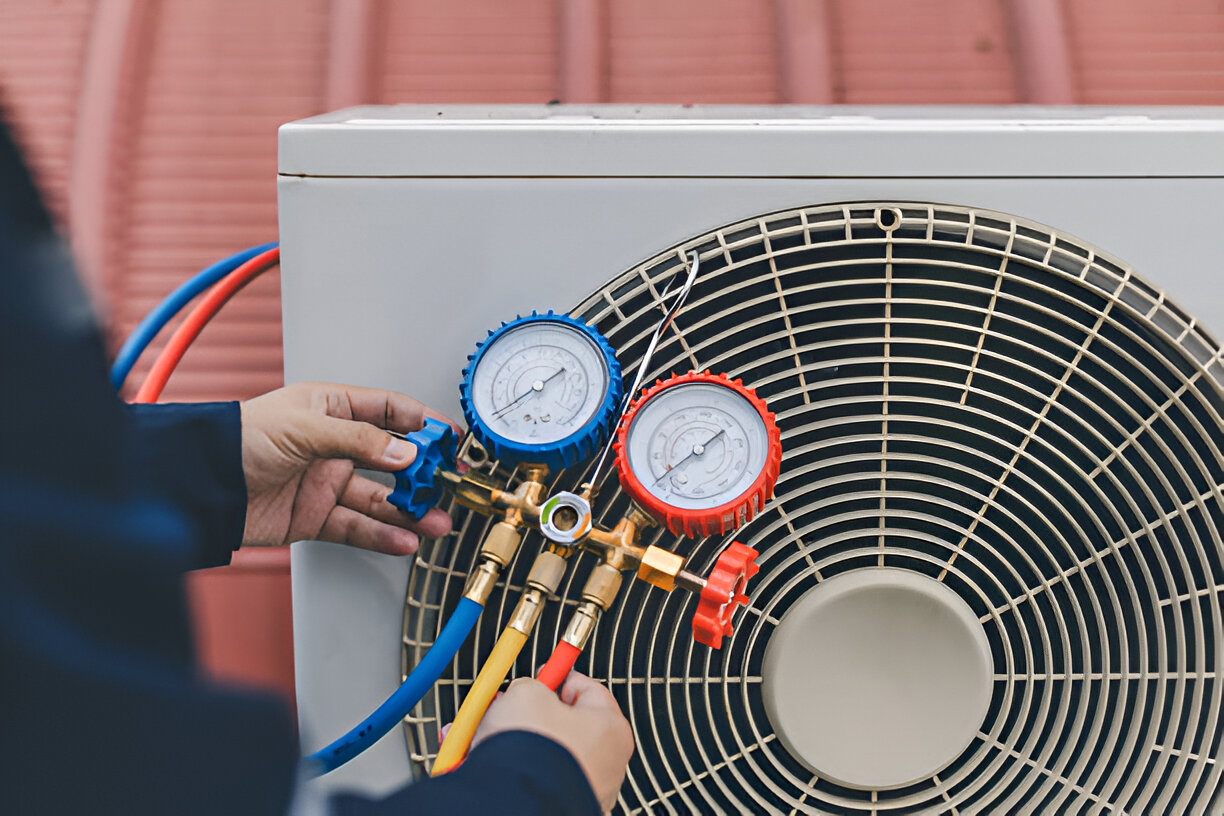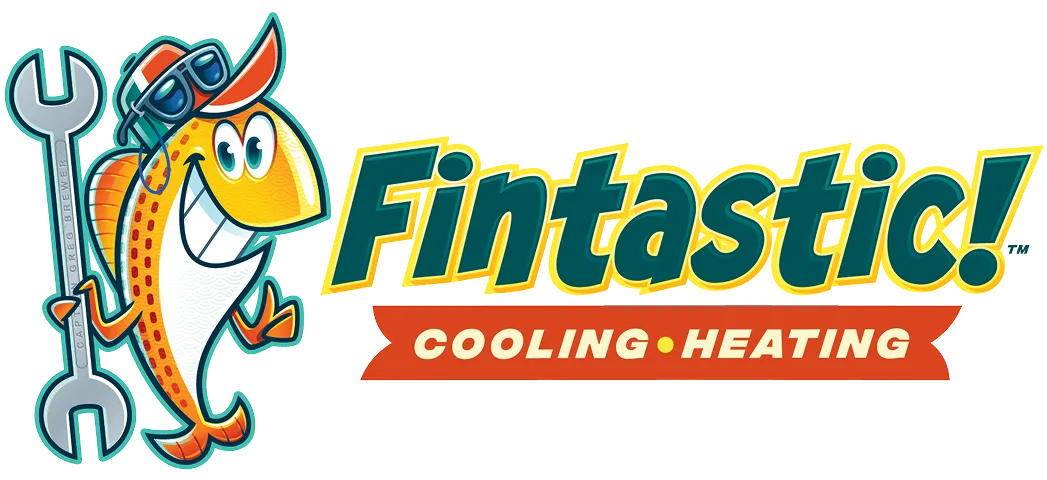Furnace Tune Up in West Houston, TX
Keeping your furnace tuned and ready matters in West Houston homes where humidity, seasonal temperature swings, and older neighborhood systems can create avoidable problems. A professional furnace tune up in West Houston, TX is a focused inspection and maintenance visit that restores safe, efficient operation, reduces breakdown risk during cold snaps, and helps your system run longer with lower energy use.
Below is what a complete furnace tune-up includes, why it matters for West Houston residents, common local issues we see, and what you can expect from the diagnostic and service process.

What a full furnace tune-up includes
A comprehensive tune-up covers inspection, cleaning, testing, and small adjustments to ensure safe, efficient operation.
- Visual inspection of the system: cabinet, burners, flue, venting, and access panels checked for signs of corrosion, leaks, or damage common in humid Gulf Coast climates.
- Burner and combustion cleaning: remove soot and debris from burners and combustion chamber to improve ignition and fuel burn.
- Blower and motor cleaning: clean blower wheel and motor housing to restore airflow and prevent overheating.
- Ignition and pilot assembly checks: test electronic igniters or pilot lights for reliable starts. Adjust or recommend repair if ignition is intermittent.
- Thermostat calibration: verify set temperatures match actual room temperatures and recalibrate or advise on thermostat placement issues.
- Airflow verification: measure airflow, check filters, test return vents and supply registers, and look for duct restrictions that reduce efficiency.
- Safety checks and carbon monoxide (CO) testing: inspect heat exchanger for cracks, verify flue and vent integrity, and measure CO levels to ensure safe indoor air.
- Electrical and control checks: tighten connections, test relays and safety switches, and confirm proper control board operation.
- Performance testing: measure operating amps, temperature rise across the furnace, and combustion efficiency where applicable to confirm the system is within manufacturer specs.
- Maintenance recommendations: identify worn parts, needed repairs, or improvements like filters, drain cleaning, or duct sealing.
Why annual tune-ups matter in West Houston
- West Houston’s humidity accelerates corrosion on metal components and can trap moisture in ductwork and flues. Regular cleaning prevents rust and clogging.
- Even though winters are milder than northern states, occasional cold snaps make reliable heating essential. Tune-ups reduce the risk of sudden failures when you need heat most.
- Homes in older West Houston neighborhoods often have older furnaces or mixed HVAC systems; proactive maintenance reduces expensive emergency repairs and extends service life.
- Proper tune-ups restore efficiency, lowering energy use and helping control monthly utility bills during heating season.
Common furnace issues in West Houston homes
- Clogged burners and dirty combustion chambers from pollen, dust, and humid air, causing poor ignition or yellow flames.
- Reduced airflow from dirty filters, restricted returns, or partially blocked ducts—common in homes with recent renovations or attic access.
- Intermittent ignition or pilot failures after infrequent use or rodent/insect nests in utility closets.
- Corroded flues or vent connectors accelerated by coastal humidity and occasional heavy rain intrusion.
- Heat exchanger wear: cracks lead to safety risks and elevated CO exposure; detection is critical for occupant safety.
- Thermostat or control issues from improper placement (sun-exposed walls) or drift over time, causing short cycling or uneven heating.
Diagnostic and service process — what to expect
A tune-up is systematic and measurable, not just visual. Technicians will:
- Start with a visual and mechanical inspection of the cabinet, vents, and safety interlocks.
- Check system operation through a full heating cycle while monitoring ignition, burner behavior, and blower engagement.
- Measure temperature rise across the furnace to confirm proper heat transfer. This simple test identifies blocked heat exchangers or inadequate airflow.
- Perform electrical checks including motor amps and control voltages to detect failing components early.
- Conduct a combustion efficiency or CO test at the flue and in the living space to verify safe venting and combustion. Readings outside manufacturer limits trigger immediate safety recommendations.
- Clean burners, blower wheel, and accessible components; replace or recommend the appropriate air filter.
- Recheck thermostat settings and recalibrate the control as needed.
- Provide a clear list of findings and prioritized maintenance or repair recommendations.
All checks are explained in plain language so you understand why a repair is needed, what it will fix, and how it impacts safety and efficiency.
Repairs and solutions commonly performed after a tune-up
- Replacing worn ignition components or pilot assemblies to restore consistent starting.
- Cleaning or replacing air filters and clearing return vents to recover airflow and comfort.
- Repairing or replacing corroded venting and flue connectors to restore safe exhaust paths.
- Tightening electrical connections and replacing failing relays or capacitors to prevent mid-season breakdowns.
- Replacing worn blower motors or belts when continued operation would risk failure.
- Recommending heat exchanger replacement when cracks or serious corrosion are detected for occupant safety.
Safety and carbon monoxide (CO) focus
Carbon monoxide testing is a central part of any responsible furnace tune-up. Technicians will inspect the heat exchanger for cracks, test flue draft, and measure CO at the flue and in the immediate living area. Even low levels of CO over time are hazardous; early detection during a tune-up prevents chronic exposure.
Timing and frequency
Annual tune-ups performed in the fall are ideal for West Houston because they prepare systems before the cooler months and identify issues after summer humidity. For older furnaces, high-use systems, or homes with past duct or moisture problems, semiannual or more frequent checks may be recommended.
Bottom-line benefits
- Improved energy efficiency and lower heating costs.
- Fewer emergency repairs and longer furnace life.
- Safer operation with verified CO and safety controls.
- More consistent comfort and reduced hot/cold spots.
- Documentation that can support warranty compliance and resale value.
A proper furnace tune up in West Houston, TX is an investment in safety, reliability, and comfort. Regular, professional maintenance keeps systems running cleanly and efficiently in our local climate, and it prevents small problems from becoming costly emergencies.
Customer Testimonials
Our customers praise our exceptional service and attention to detail, consistently exceeding expectations.































































